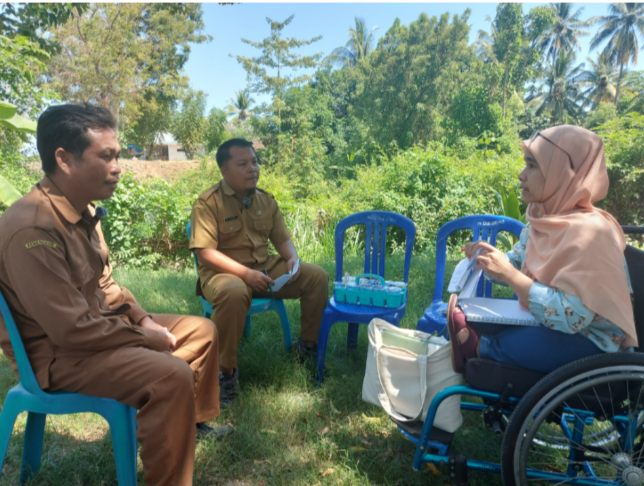Building capacity for disability inclusive programming and advice

CBM Global’s Inclusion Advisory Group (IAG) often develops resources for and with people with disabilities to help support their meaningful engagement in mainstream development and humanitarian policy and programming. Our resources are tailored to meet the challenges and needs they and our mainstream partners identify. Like us, many of our partners are committed to piloting, refining and sharing these for the benefit of the wider sector. In 2024, we:
- Continued to work with UNICEF, finalising and rolling out a disability inclusion training package for frontline workers.
With UNICEF, we developed a training package on disability inclusion for Frontline Workers such as healthcare workers, teachers, social workers, criminal justice system staff and humanitarians. Six short video modules with complementary facilitator guides were developed to support trained facilitators to tailor the package to their different contexts and audiences. When asked what the biggest takeaway was from participating in the workshops, one participant reflected:
“We are on the right track, but we have a lot to do, and it starts with asking what’s really needed from the people demanding the services – people with disabilities.”
- Worked with Abilis and the Finnish Red Cross to develop and begin testing a disability inclusion guidance note for International Federation of the Red Cross operations and programmes.
- Developed a range of resources with and at the request of disability movement partners to support their engagement in technical advice, including:
- Guidance notes for OPDs on disaster risk reduction, climate change adaptation, social protection and preconditions for inclusion.
- Resources to support them in their negotiations with and advice to mainstream partners.
- Continued to update and expand our training resources, including geographically tailored Choose Your Own Adventure packages for disaster risk reduction (Pacific, Asia and Africa) and climate change adaptation. These interactive resources support people in identifying disability inclusion entry points and understanding the consequences of different decisions for people with disabilities.
Developing the capacity of the disability movement to influence through the provision of technical advice also remained key, as we concluded our Advisory Capacity development and Exchange (ACE) Fellowship programme and began planning the next steps. We are privileged to continue to work alongside several of these Fellows as they seek to affect change in their countries through technical advice.
